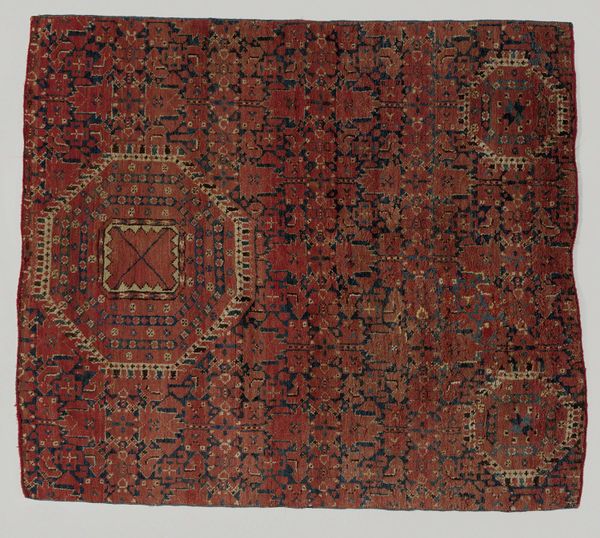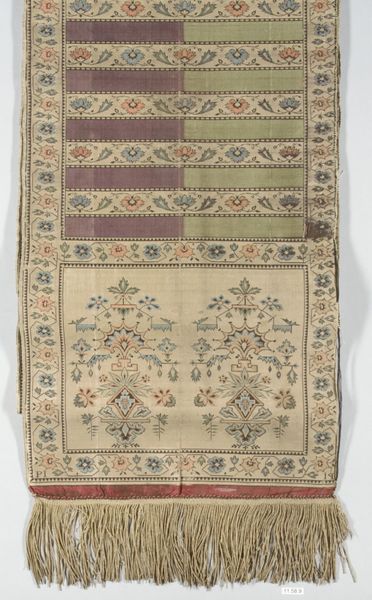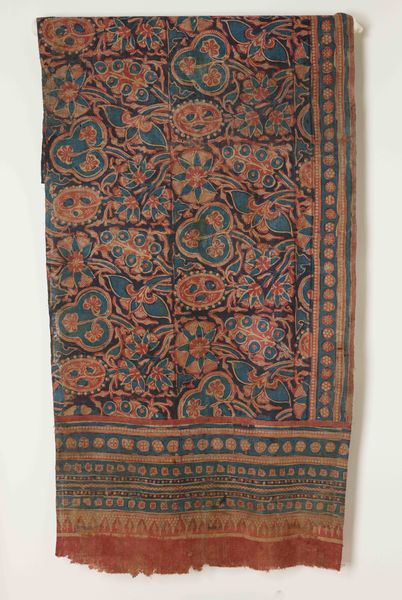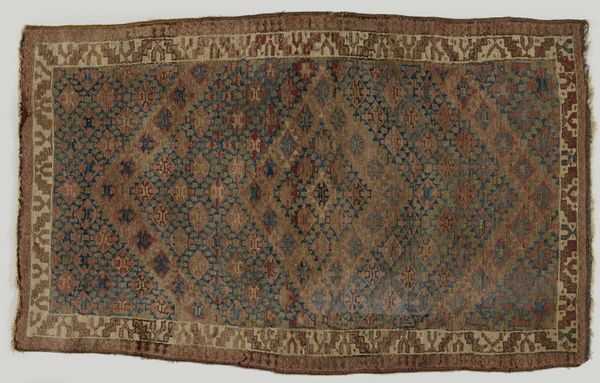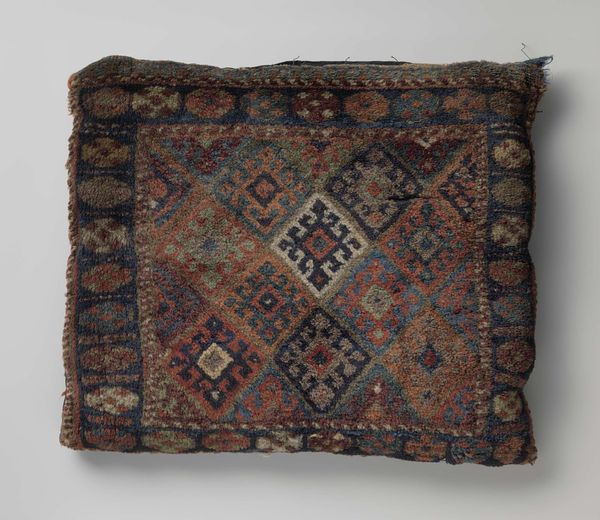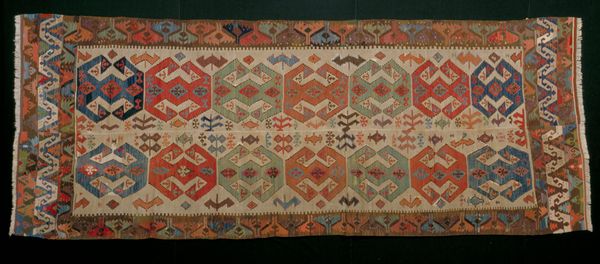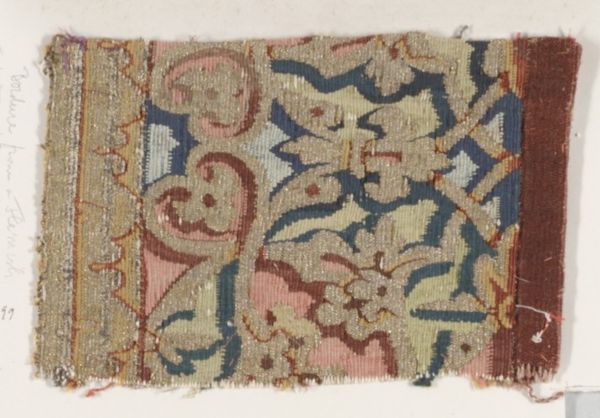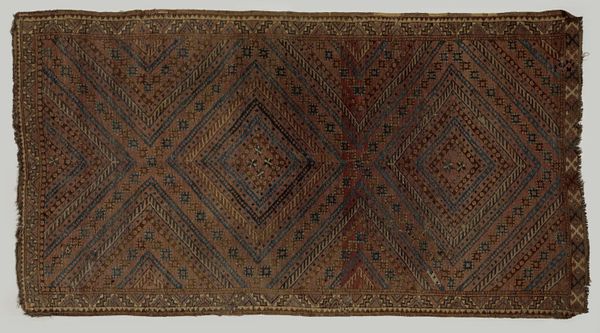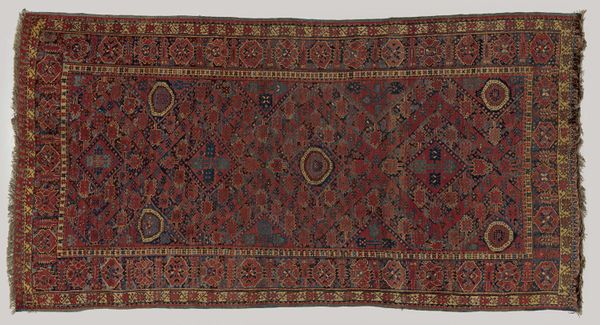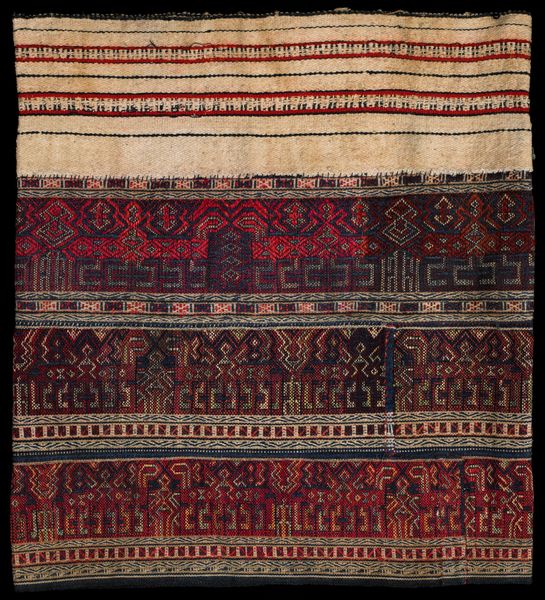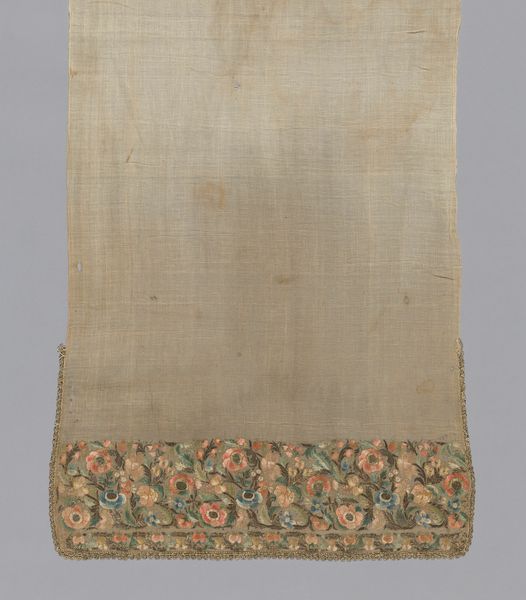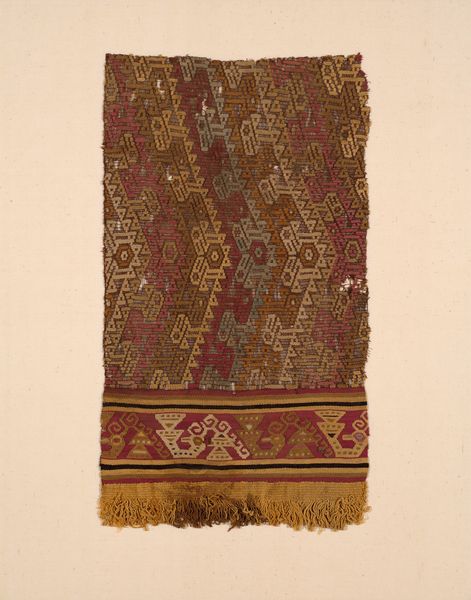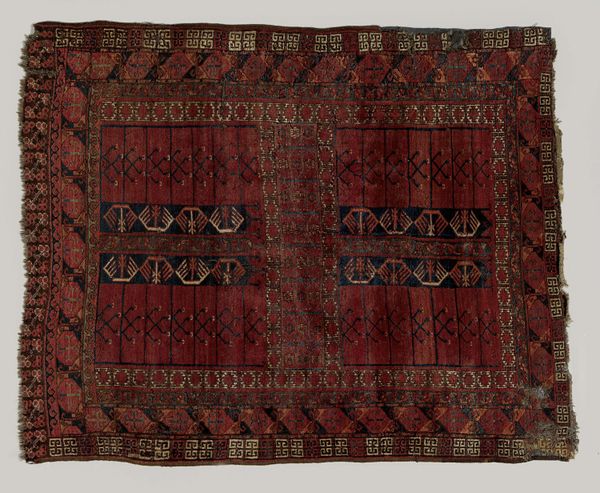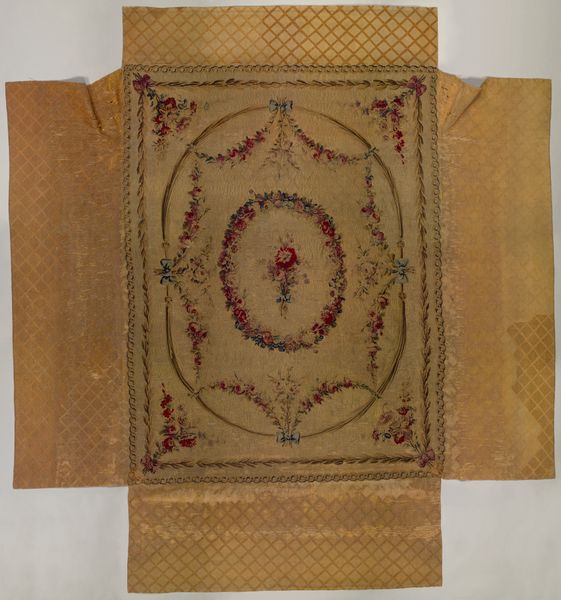
fibre-art, textile
#
fibre-art
#
textile
#
decorative-art
Dimensions: 24 1/4 × 7 5/8 in. (61.6 × 19.4 cm)
Copyright: Public Domain
Editor: This is an Embroidered band sampler from 1684, made by Esther French. It's currently housed at the Metropolitan Museum of Art. The meticulous detail is amazing! What do you see when you look at this piece? Curator: I see a complex narrative about women's education and domestic roles in the 17th century. Samplers like these weren't just decorative; they were a demonstration of skill, literacy, and moral virtue. Think of them as early forms of visual literacy. How does knowing this changes your interpretation? Editor: I didn’t realize these samplers were like skill portfolios. The alphabets now speak to literacy and the patterns reflect skill with textiles! Is there something deeper we can learn from these symbols? Curator: Absolutely. Each motif, from the floral patterns to the geometric shapes, could carry symbolic meaning. Consider how needlework became one of the few acceptable forms of expression available to women at the time. This textile is evidence of cultural values about a young girl’s place in society. It gives insight into a young girl’s identity at that point in history. Editor: I can see it representing more than just stitches. I really see a tangible connection to Esther and what it was like to be her! Curator: Precisely! It invites us to contemplate gender roles and societal expectations that women throughout history have experienced, not necessarily visible at first glance. Seeing it now, what do you take away from it? Editor: Now I appreciate the hidden activism that lies beneath the surface. It's not just a beautiful antique textile; it's a historical statement. Curator: Indeed! It is a stitch in time that keeps informing our present.
Comments
No comments
Be the first to comment and join the conversation on the ultimate creative platform.
